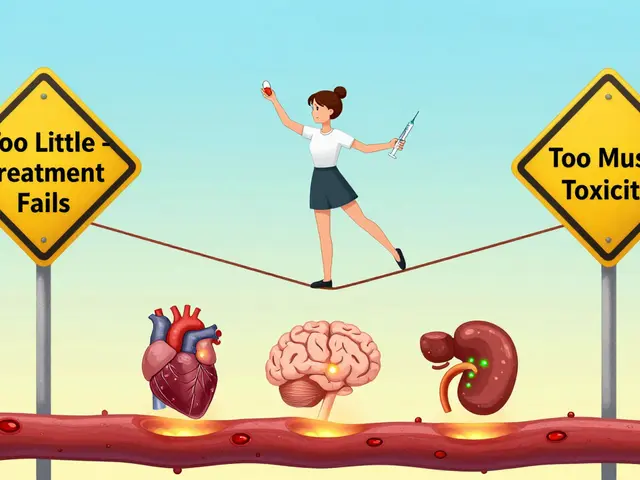Mood disorders: practical help, medication guides, and what to watch for
Mood disorders are more than feeling down or restless. They can change how you think, sleep, work, and connect with people. If you or someone you care about is dealing with big mood swings, low mood that won’t lift, or sudden highs and crashes, this page points to useful, plain-language resources and explains the most important things to know about treatment and medications.
Getting the right care usually means a mix of therapy, lifestyle changes, and sometimes medication. Meds can work well, but they often come with trade-offs. That’s why knowing what each drug does, how long it takes to help, and which side effects to watch for matters.
Common medicines you’ll find on this site
We cover several drugs that are commonly used for mood conditions. For example, Depakote (valproic acid) is a mood stabilizer often used for bipolar disorder—our guide explains how it works, common side effects, and tips for taking it safely. Some seizure or nerve pain drugs show up as alternatives for mood or anxiety problems; our Neurontin alternatives article compares options and highlights when a switch might make sense. You’ll also find practical posts about managing prescriptions online—helpful if you need refills or cheaper options.
Medications used for other conditions can affect mood too. If you’re taking drugs for chronic illness, heart issues, or autoimmune disease, watch for mood changes and read the medication notes. We include plain guides on what to expect and when to talk to your doctor.
How to stay safe while on mood meds
First, never stop or change doses without checking with your prescriber. Sudden changes can cause withdrawal, rebound symptoms, or dangerous side effects. Second, track how you feel—mood, sleep, appetite, energy—and share that with your clinician. Small daily notes help your doctor make smarter adjustments.
Watch for red flags: increased suicidal thoughts, severe sleep changes, confusion, or sudden physical symptoms like high fever or rashes. If any of those show up, get medical help right away. Also ask about drug interactions—many psychiatric medicines interact with other prescriptions, supplements, and even some over-the-counter remedies.
Practical tips: keep a single list of all meds and doses, use a pill box or app for reminders, and schedule regular check-ins with your prescriber. If cost or access is a problem, our posts on online pharmacies and affordable options can point you to safer choices.
If you want quick reads, check our detailed guides like the Depakote overview, Neurontin alternatives, and articles on managing prescriptions online. Each piece focuses on clear, useful steps you can take today—no medical jargon, just practical info to help you feel steadier and safer.
If you’re unsure where to start, talk to a primary care doctor or mental health provider and bring notes from this site to guide the conversation. Getting the right plan often makes a big, fast difference.
I recently came across some interesting research on dydrogesterone and its potential role in treating mood disorders. Dydrogesterone is a synthetic hormone that mimics the effects of progesterone, and studies suggest it could help alleviate symptoms of depression and anxiety. This is especially significant for women who experience mood swings related to their menstrual cycle. While more research is needed, it's exciting to think we might be closer to finding a new way to manage mood disorders. I'll be keeping an eye on this topic as it develops!
View Details

